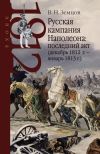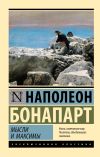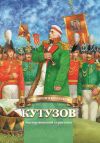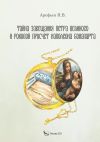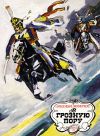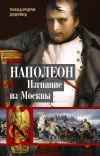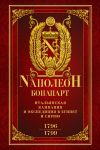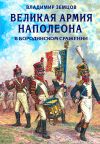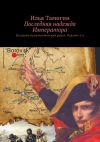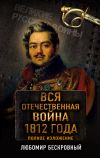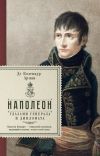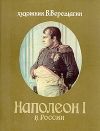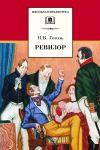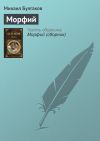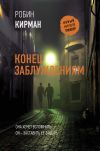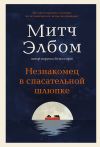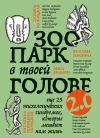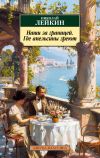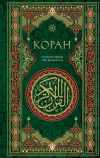Текст книги "Борисов, Березина… Последняя надежда Наполеона"
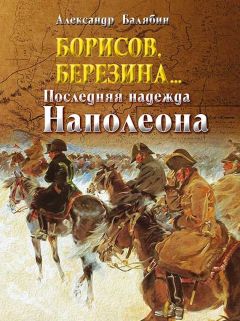
Автор книги: Александр Балябин
Жанр: История, Наука и Образование
Возрастные ограничения: +12
сообщить о неприемлемом содержимом
Текущая страница: 3 (всего у книги 3 страниц)
SUMMARY (Резюме)
In November 1812, retreating from Russia along the Moscow track, the Great Army entered Belarus. Napoleon faced almost irresolvable task: to avoid three Russian armies and reach one of the basic stronghold points on the main communication line for troops supply – the city of Minsk. But on November, 16 the vanguard of the 3rd West Army under the command of admiral Chichagov seized Minsk. The threat of the Russian troops’ output to the river has appeared. It was going to ruin the French emperor ’s intention to settle the winter headquarters here. That’s why Napoleon put great store on Borisov where there was a bridge crossing, which opened a straight way to Minsk. Meanwhile, on November, 21 Russian vanguard of general-lieutenant Lambert occupied the Borisov bridgehead and invaded the city. The Great Army turned out to be surrounded.
The commander of the 2nd enclosure – Marshal Oudinot got an order to regain Borisov. In case of failure he had to start looking for a good place to cross the river. Napoleon considered two ways of the situation progress: breaking through Borisov to Minsk, or retreating to Vilno (now Villnius).
On November, 23 French cavalry of the 2nd enclosure defeated Russian vanguard of the Major-General Palen. French troops took over Borisov. Chichagov’s troops disorderly retreated to the right bank and burnt the bridge. The same day general Corbineau informed Napoleon about the crossing in Studionka village. The 2nd enclosure commander got an order to prepare a transport.
In the morning of November, 24 Napoleon received a message from Oudinot, which contained a detailed report on the battle for Borisov and the crossings found. By the night Napoleon’s headquarters moved to Loshnitsa village; there the emperor received another letter from Oudinot. Marshal described the problems which arose during construction of the bridges and asked for help. The emperor informed that two Infantry Divisions of the Young Guard would go to Borisov and demanded that the construction was finished as fast as possible. The commander of the 9th Army enclosure marshal Victor was ordered to deter the promotion of Russia’s 1st single enclosure of Lieutenant-General Wittgenstein. But marshal violated Napoleon’s order.
Despite the critical situation of the Army, Napoleon considered to cross the river during the night of November, 26 by the facilities of the 2nd and the 9th corps and the Guard. Napoleon ordered the 1st, the 4th, the 5th, and the 8th corps to stop motion till the special order and to echelon on the road between Nachi and Nemanitsa. Army Police was ordered to keep the left behind and dismounted soldiers from getting to Borisov.
In the morning of November, 25 the main part of the Army left for Borisov. Napoleon had from 35,000 to 40,000 good armed soldiers approaching the Berezina river. The same amount of demoralized, wounded and ill ones altogether with civilians followed the Army. After midday the emperor got to Nemanitsa, where he stopped for a while. Receiving messages from the banks of Berezina, Napoleon corrected his plans. After he came close to Borisov, Napoleon considered two possible ways of events’ progress:
1) see the situation and get “the Borisov bridge back” by surprise;
2) use disinformation, false maneuvers and demonstrations to make the commander of the 3rd West Army believe that French Army was going to cross the river in Borisov or to the South, but not in Studionka.
It is considered that Napoleon arrived to Borisov about 17.00. There are some versions concerning his headquarters’ location in Borisov. After a short rest Bonaparte went for reconnoiter. It took a bit more an hour. Watering Berezina, cannons on the high positions before the bridge, spoilt bridge – all these made Borisov a wrong place to cross the river. At his meeting with Generals and Marshals Napoleon announced he was eager to cross the river in Studionka. He stayed in Borisov for a while and then, closer to midnight, went to Staro-Borisov (now Staroborisov village) for the night. Evidently, he spent the night of November, 26 at baron Korsak’s house – the host of the “Borisovshina” estate, which belonged to Radzivills.
The next days, November, 26–29, 1812 the legendary event known as the Napoleon’s Army crossing the Berezina river took place in Borisovshina. This dramatic event has been reflected on the pages of various historical investigations and books, in cinema, literature and art of Belarus, Russia and many other European countries and America.
Today, after two centuries, there is no evidence of Napoleon’s presence in Borisov. Only legends and stories, as well as memorials at the past battle sites save memory for this magnificent military leader and state person.
Список рекомендуемой литературы
1. Будон, Жак-Оливье. Наполеон – полководец и человек / Жак-Оливье Будон; пер. с фр. – Минск: изд-во «Четыре четверти», 2012.
2. Васильев, И. Н. Несколько громких ударов по хвосту тигра: операция на Березине осенью 1812 года, или Реабилитация адмирала Чичагова / И. Н. Васильев. – Москва: Рейтар, 2001.
3. Груцо, И. А. Сокровища Наполеона: история, версии, поиски, картография / И. А. Груцо. – Минск: ТетраСистемс, 2010.
4. Де Коленкур, А. Мемуары: поход Наполеона в Россию / А. де Коленкур; пер. с фр. – М.; Таллинн: АО «Скиф Алекс», 1994.
5. Лашук, А. Наполеон. История всех походов и битв. 1796–1815 / А. Лашук; [пер. с фр.]. – М.: Эксмо, 2008.
6. Лякин, В. А. Гроза двенадцатого года над Полесьем / В. Лякин. – Минск: изд-во «Четыре четверти», 2009.
7. Лукашевич, А. М. Памятники и памятные места 1812 года в Беларуси / А. М. Лукашевич. – Минск: Харвест, 2012.
8. Мазинг, Г. Ю. Березина, год 1812-й / Г. Ю. Мазинг, Л. Ф. Ерусалимчик. – Минск: Полымя, 1991.
9. Наполеон в России в воспоминаниях иностранцев: в 2 кн. Кн. 2. От– ступление / пер. с фр. и нем. – М.: Захаров, 2004.
10. Роос, Г. С Наполеоном в Россию. – М.: ООО «Наследие», 2003.
11. Де Сегюр, Ф. П. Поход в Россию: записки адъютанта императора Наполеона I / Ф. П. де Сегюр; пер. с фр. Н. Васина, Э. Пименовой. – Смоленск: Русич, 2003.
12. Тарле, Е. В. Нашествие Наполеона на Россию. 1812 год / Е. В. Тар– ле. – М.: Воениздат, 1992.
13. Чандлер, Д. Военные кампании Наполеона. Триумф и трагедия завоевателя: монография / Д. Чандлер; пер. с англ. Н. Б. Черных-Кедровой. – М.: изд-во «Центрополиграф», 2001.
14. Швед, В. Заходні рэгіён Беларусі ў часы напалеонаўскіх войнаў. 1805–1815 гады / В. Швед, С. Данскіх. – Гродна: ГрДУ імя Янкі Купалы, 2006.
Правообладателям!
Это произведение, предположительно, находится в статусе 'public domain'. Если это не так и размещение материала нарушает чьи-либо права, то сообщите нам об этом.